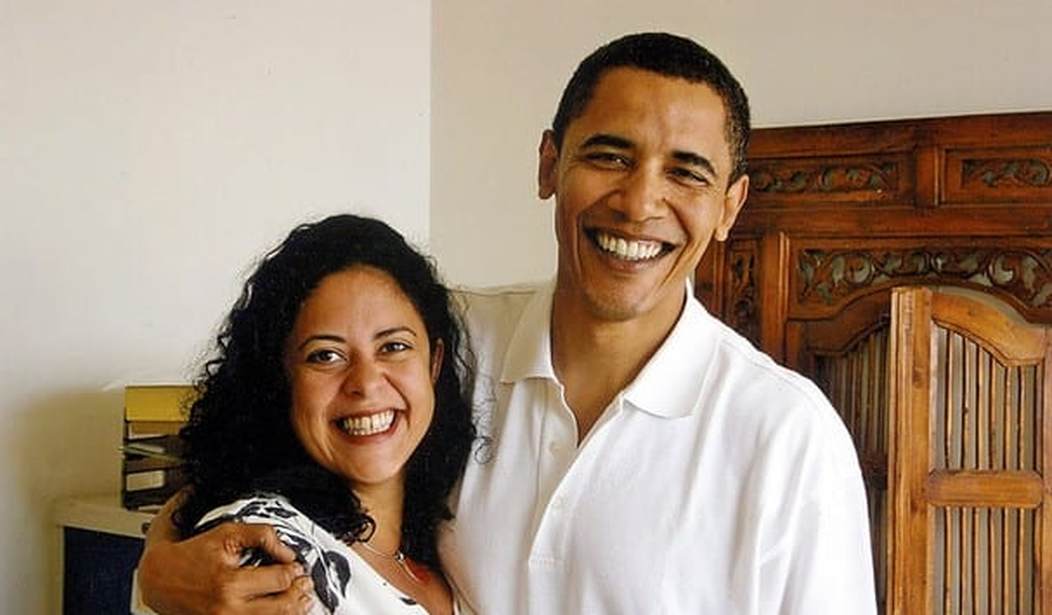President Obama’s half sister Maya Soetoro-Ng, a professor, called her brother’s signature healthcare law “complicated” when addressing the impact of its regulations on health insurance costs for colleges, universities and students.
Schools including Hillsborough Community College and St. Petersburg College have said they are cutting adjunct professors’ hours to avoid the added cost of covering every full-time employee as mandated by the Affordable Care Act, or Obamacare. The law requires employers to offer health insurance to their employees who are working 30 hours or more per week.
Since Obamacare also places caps on out-of-pocket costs, some colleges are dropping health coverage for students due to premium increases.
PJ Media asked Soetoro-Ng if she views these issues as negative results of Obamacare.
“I think it’s a complicated law and that it is being worked out in meaningful, powerful and important ways by those who are implementing it as well as those who are governing its implementation from above and afar but I think that it – I’m, you know, very proud of my brother’s administration and the hard work they did in healthcare,” said Soetoro-Ng after an event at the Center for American Progress in Washington.
“I think that it’s doing some very good things and that we will probably see its, you know, the impact of the policy in the years to come and with greater clarity.”
Soetoro-Ng actively campaigned for Obama in the 2008 and 2012 presidential elections. She addressed the 2012 Democratic National Convention in Charlotte, N.C., alongside First Lady Michelle Obama’s brother Craig Robinson. Soetoro-Ng is an education professor at the University of Hawaii at Manoa.
David Hoovler, executive assistant to president of Community College of Allegheny County, said their school preferred to expand coverage for their faculty but it was “simply unaffordable.”
The college ultimately decided to reduce “the workload limit for its temporary, part-time adjuncts from 12 to 10 credits per semester” so they would not be defined as full-time employees under the healthcare law.
According to the Chronicle of Higher Education, the institution has “an annual operating budget of around $109 million, and administrators estimate it would cost at least $6 million to provide health benefits to the 400 part-time temporary employees” who would have to be covered due to the Obamacare requirement.
Richard Mercadante, head of the Faculty Governance Organization at St. Petersburg College, said the “bottom line” for state colleges is “the new law becomes an unfunded mandate.”
He added that the “part-time to full-time ratio is so large that any given college would have to find millions of dollars in their budgets to offer adjuncts health insurance.”
Obamacare’s rules are also impacting students who pay for health plans with out-of-pocket costs through their colleges.
According to Forbes, premiums at Lenoir-Rhyne University in Hickory, N.C. “rose from $245 per student in 2011-2012 to between $2,507 in 2012-2013. The University of Pugent Sound aid $165 per student in 2011-2012; their rates rose to between $1,500 and $2,000 for 2012-2013.”
Some institutions like Bethany College have dropped plans for students, according to the Wall Street Journal. The Obama administration announced on Tuesday that they are not enforcing the out-of-pocket limit rule until 2015, giving employers more time to comply.
In July of this year, a CBS News poll revealed that “more Americans than ever” want the healthcare law repealed.
The poll found that “36 percent of Americans want Congress to expand or keep the healthcare law while 39 percent want Congress to repeal it – the highest percentage seen in CBS News polls,” said CBS News.
“The poll also found a majority of Americans – 54 percent – disapprove of the healthcare law, 36 percent of Americans approve of it and 10 percent said they don’t know about it.”
A recent Rasmussen Reports national telephone survey found that 41 percent of likely U.S. voters “share an at least somewhat favorable view of the healthcare law,” while 53 percent “view it unfavorably.”









Join the conversation as a VIP Member